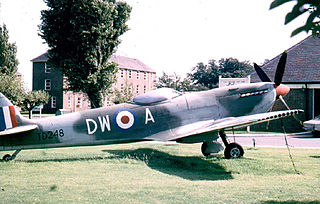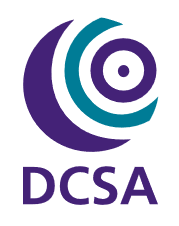Related Research Articles

The Ministry of Defence is a ministerial department of the Government of the United Kingdom. It is responsible for implementing the defence policy set by the government and serves as the headquarters of the British Armed Forces.

The Corps of Royal Electrical and Mechanical Engineers is the maintenance arm of the British Army that maintains the equipment that the Army uses. The corps is described as the "British Army's professional engineers".

MOD Sealand, is a Ministry of Defence installation in Flintshire, in the northeast corner of Wales, close to the border with England.
Thales Underwater Systems or TUS is a subsidiary of the French defense electronics specialist Thales Group. It was founded in 2001 and belongs to its naval division. It specializes in the development and manufacturing of sonar systems for submarines, surface warships and aircraft, as well as communications masts and systems for submarines. Its headquarters are located in Sophia Antipolis, France.

RAF Andover is a former Royal Flying Corps and Royal Air Force station in England, 2 miles (3.2 km) west of Andover, Hampshire. As well as RFC and RAF units, units of the Aviation Section, U.S. Signal Corps, Royal Canadian Air Force, United States Army Air Forces, and the Air Transport Auxiliary were also stationed at the airfield.

The Royal Army Ordnance Corps (RAOC) was a corps of the British Army. At its renaming as a Royal Corps in 1918 it was both a supply and repair corps. In the supply area it had responsibility for weapons, armoured vehicles and other military equipment, ammunition and clothing and certain minor functions such as laundry, mobile baths and photography. The RAOC was also responsible for a major element of the repair of Army equipment. In 1942 the latter function was transferred to the Royal Electrical and Mechanical Engineers (REME) and the vehicle storage and spares responsibilities of the Royal Army Service Corps were in turn passed over to the RAOC. The RAOC retained repair responsibilities for ammunition, clothing and certain ranges of general stores. In 1964 the McLeod Reorganisation of Army Logistics resulted in the RAOC absorbing petroleum, rations and accommodation stores functions from the Royal Army Service Corps as well as the Army Fire Service, barrack services, sponsorship of NAAFI (EFI) and the management of staff clerks from the same Corps. On 5 April 1993, the RAOC was one of the corps that amalgamated to form The Royal Logistic Corps (RLC).
Babcock International Group plc is a British aerospace, defence and nuclear engineering services company based in London, England. It specialises in managing complex assets and infrastructure. Although the company has civil contracts, its main business is with public bodies, particularly the United Kingdom's Ministry of Defence and Network Rail. The company has four operating sectors, with overseas operations based in Africa, North America, South America, Europe and Australia.

The Defence Communication Services Agency (DCSA) was an agency of the United Kingdom Ministry of Defence responsible for the procurement and delivery of Communications and Information Services (CIS) to the defence community and related public and private sector bodies. The Agency was formed on 1 April 1998, bringing together a range of CIS organisations across all three services.
The Capability Acquisition and Sustainment Group (CASG) is an organisation within the Australian Department of Defence, responsible for acquisition, supply chain management, and sustainment of military equipment and materiel including aircraft, ships, vehicles, electronic systems, weapons, ordnance, uniforms and rations for the Australian Defence Force. CASG employs more than 7000 military, civilian and contracted staff in more than 70 locations around Australia and internationally.

Military organization (AE) or military organisation (BE) is the structuring of the armed forces of a state so as to offer such military capability as a national defense policy may require. Formal military organization tends to use hierarchical forms.

The Defence Aviation Repair Agency, better known as DARA, was an executive agency of the United Kingdom Ministry of Defence, responsible for the maintenance and repair of Royal Air Force, Army and the Royal Navy's aircraft. It became part of the Defence Support Group from 1 April 2008. Part of the Defence Support Group (DSG) was sold to Babcock on 31 March 2015 while the remainder became the Defence Electronics and Components Agency (DECA) on 1 April 2015.

The Military Provost Guard Service (MPGS) is responsible for maintaining physical security at British Armed Forces locations throughout Great Britain. It is one of three constituent units of the Adjutant General's Corps Provost Branch. The Provost branch is the responsibility of the Provost Marshal who is a Brigadier from the Royal Military Police. The MPGS also works alongside the unarmed Ministry of Defence Guard Service (MGS). In Northern Ireland, armed security at Ministry of Defence establishments is provided by the uniformed civilian Northern Ireland Security Guard Service in a similar manner to that of the MPGS in Great Britain.

The Defence Chemical, Biological, Radiological and Nuclear Centre is a United Kingdom military facility at Winterbourne Gunner in Wiltshire, south of Porton Down and about 4 miles (6 km) north-east of Salisbury. It is a tri-service location, with the Army being the lead service. The centre is responsible for all training issues relating to chemical, biological, radiological and nuclear (CBRN) defence and warfare for the UK's armed forces.

Royal Air Force Upavon, or more simply RAF Upavon, is a former Royal Air Force station in Wiltshire, England. It was a grass airfield, military flight training school, and administrative headquarters of the Royal Air Force. The station opened in 1912 and closed in 1993, when it was transferred to the British Army and became known as Trenchard Lines.

The Military Industry Corporation is the state-run defense corporation of Sudan. It is responsible for the production of a wide range of defence equipment, such as munitions, firearms, artillery etc.

The Defence Support Group (DSG) was an executive agency and wholly owned trading fund of the Ministry of Defence in the United Kingdom. It was established on 1 April 2008 by the merger of the Defence Aviation Repair Agency and the Army Base Repair Organisation. It was created under The Defence Support Group Trading Fund Order 2008. Part of the group was sold to Babcock International on 31 March 2015, while the remainder became the Defence Electronics and Components Agency (DECA) on 1 April 2015.

A trading fund is an executive agency, government department or often simply a part of a department, that enables the department to handle its own revenues and expenses separately from overall government finances and more like a business, as opposed to having to obtain funding from the government's legislature and feeding income back into its treasury. A Hong Kong parliamentary study of trading funds in the UK and Hong Kong describes their nature and purpose as follows:
A trading fund is a financial and accounting framework established by law to enable a government department, or part of a department, to adopt certain accounting and management practices common in the private sector. [The fund] operates on a self-financing basis and does not need to regularly seek funding from the legislature to finance its daily operations after its establishment... the intention [is that such] an institutional change would provide the appropriate flexibility in resource management and nurture a new working culture to improve services in terms of both quality and cost-effectiveness.
The Somerville Logistic Committee was established by General Sir William Jackson the then Quarter Master General (QMG) in 1974 to consider the re-structuring of the MOD (Army) Q Staffs and logistic services. It was chaired by Major General RM Somerville the then Vice Quarter Master General (VQMG). It reported in March 1975.

MOD Corsham is a Ministry of Defence establishment located between the towns of Corsham and Box in Wiltshire, England. Since 1998 the site's principal activities concern British Armed Forces and MOD information and communications technology and information warfare.
Abro is a clan settled in Sindh and Balochistan.
References
- 1 2 "Defence Support Group History". dsg.mod.uk. 2013. Archived from the original on 28 March 2013. Retrieved 10 May 2013.
- ↑ "Written Answers to Questions – Defence – Depleted Uranium; Army Static Workshop Productivity Scheme". Parliamentary Debates (Hansard) . House of Commons. 31 March 1993. col. 193–194.
- ↑ "Joined-up support". Defence Management Journal. 2013. Archived from the original on 28 June 2013. Retrieved 10 May 2013.
- ↑ "ARBO 2007/08 Annual Report & Accounts" (PDF). official-documents.gov.uk. 2013. Retrieved 10 May 2013.